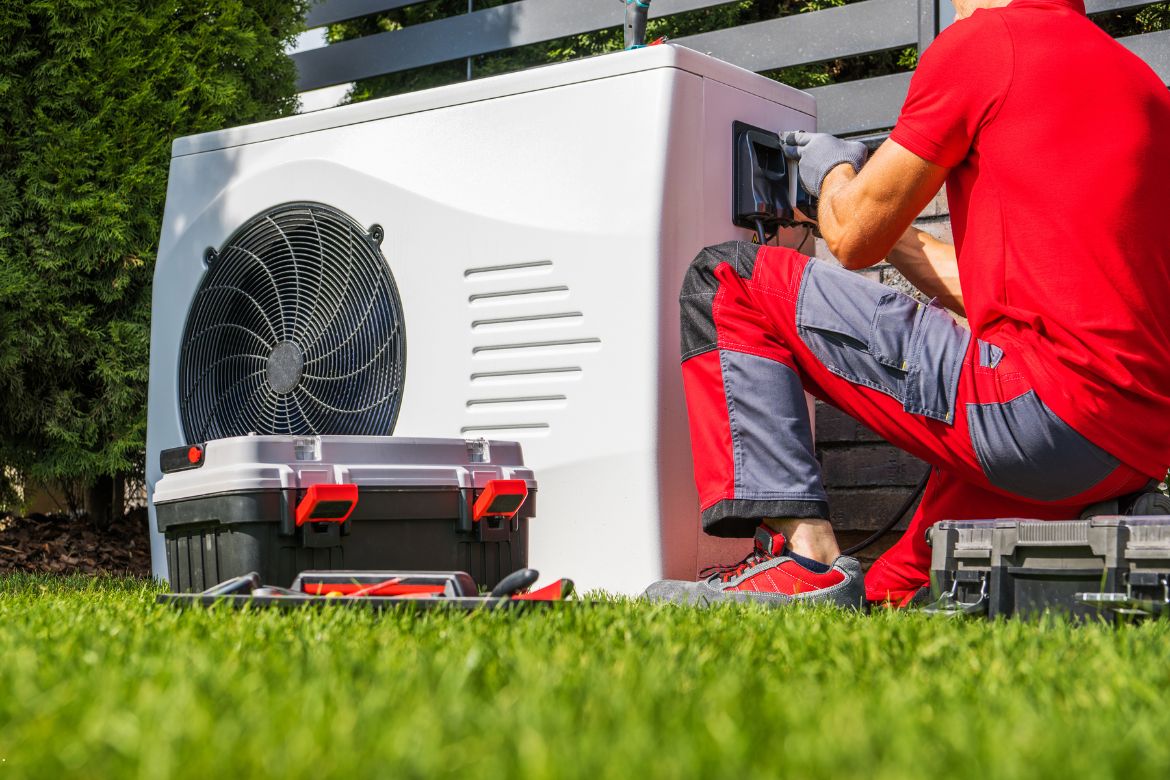When it comes to maintaining a comfortable swimming pool temperature year-round in Australia, the choice between a swimming pool heat pump and a traditional heater can significantly impact both your experience and your wallet.
With over 1.2 million private swimming pools, Australia boasts the world’s highest per capita rate of private pool ownership. This statistic underscores the importance of making an informed decision about how best to heat your pool.
Heat pumps are known for their energy efficiency, utilizing the ambient air to warm the water, which can be particularly advantageous in Australia’s diverse climate.
On the other hand, traditional heaters, including gas and electric types, offer the advantage of rapid heating, making them a popular choice for those who seek immediate results. Understanding the pros and cons of each option is crucial in determining which system aligns with your specific needs, preferences, and environmental considerations.
This article delves into the key factors you need to consider to make the best choice for your swimming pool heating needs.
Swimming Pool Heat Pumps vs. Traditional Heaters
When it comes to heating your swimming pool, the choice between heat pumps and traditional heaters can be a challenging one.
Both options have their advantages and drawbacks.
To help you make an informed decision, let’s compare these two methods using key factors.
1. Energy Efficiency
- Heat Pumps: They are known for their high energy efficiency. Heat pumps use electricity to capture heat from the air and transfer it to the pool water, making them up to 5 times more efficient than traditional heaters.
- Traditional Heaters: These typically use natural gas or propane to generate heat. While they can heat water quickly, they tend to consume more energy and can be less efficient, especially in colder climates.
2. Cost of Operation
- Heat Pumps: Although they have a higher upfront cost, heat pumps generally have lower operating costs due to their energy efficiency. Over time, they can be more cost-effective.
- Traditional Heaters: They usually have a lower initial purchase price, but the cost of fuel can make them more expensive to operate in the long run.
3. Heating Speed
- Heat Pumps: These are slower to heat the pool water, particularly in cooler weather. They are best suited for maintaining a consistent temperature rather than rapid heating.
- Traditional Heaters: They can heat the water quickly, making them ideal for those who want to use their pool on short notice.
4. Climate Considerations
- Heat Pumps: These work best in temperate to warm climates. Their efficiency drops significantly in colder weather, which may limit their use in certain regions.
- Traditional Heaters: They perform well regardless of the outside temperature, making them a reliable choice for cooler climates.
5. Environmental Impact
- Heat Pumps: These are generally considered more environmentally friendly due to their lower energy consumption and use of renewable energy sources (air).
- Traditional Heaters: They have a higher carbon footprint due to the burning of fossil fuels like natural gas or propane.
6. Lifespan and Maintenance
- Heat Pumps: With proper maintenance, heat pumps can last 10-20 years. They require regular cleaning and occasional servicing to ensure optimal performance.
- Traditional Heaters: These typically have a lifespan of 5-10 years. They also require regular maintenance, including checking the fuel lines and burner assembly.
7. Installation and Space Requirements
- Heat Pumps: They may require more space for installation and need to be placed in a well-ventilated area to function efficiently.
- Traditional Heaters: These are often more compact and can be installed in smaller spaces, but they still require proper ventilation for safety.
Conclusion
When evaluating swimming pool heat pumps versus traditional heaters, it’s clear that each option has its distinct advantages and potential drawbacks. Traditional heaters, such as gas or electric models, are known for their ability to quickly raise the water temperature, making them ideal for sudden or short-term heating needs. However, their higher operational costs and environmental impact can be significant concerns for many pool owners.
On the other hand, swimming pool heat pumps, particularly commercial-grade models, offer a more energy-efficient and environmentally friendly alternative. Although they typically have a higher upfront cost and may take longer to initially warm the pool, their long-term savings on energy bills and reduced carbon footprint make them a smart investment.
Commercial swimming pool heat pumps are especially beneficial for larger pools or facilities that require consistent, economical heating for extended periods.
On the other hand, if you need rapid heating, live in a cooler climate, or have space constraints, a traditional heater could be more suitable.
Evaluate your priorities and local conditions to decide the best option for your pool heating needs.

